Grill
A broken window grill allows a homeless man to accidentally gain access to the house of a girl who works night shifts.
by Pratik Rajen Kothari
Hindi
21 Min / India
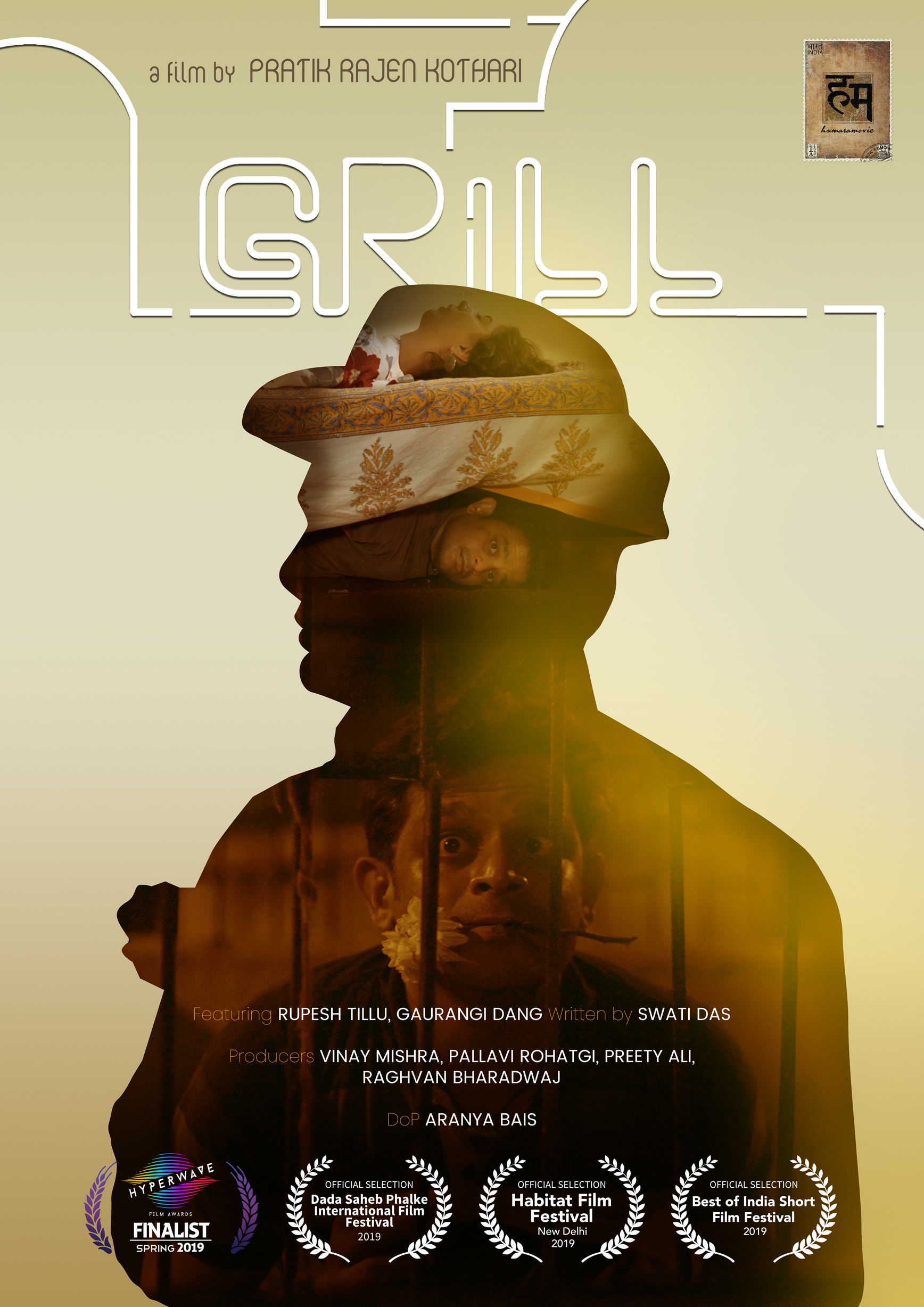 A rainy day is a probably a perfect day to watch this film where a man living on the streets gains access to a small house because of a broken grill and a happenstance that the owner, a girl, works night shifts.
A rainy day is a probably a perfect day to watch this film where a man living on the streets gains access to a small house because of a broken grill and a happenstance that the owner, a girl, works night shifts.
With Grill, we at ShortFilmWindow wanted to bring focus to humaaramovies that has been working on short film space in India for a while. Also to the director Pratik Kothari who has been working tirelessly in the area with his WWScreenings and Short Film Adda.
Grill: A broken window grill allows a homeless man to accidentally gain access to the house of a girl who works night shifts. His nights in the home are more comfortable than the harsh nights spent on the road. His growing love for the house makes him take many risks.
The film has been online and gathered quite some festival recognition and audience love. We spoke to the director about the film:
Hello Pratik! Could you tell us more about yourself? What attracted you to film-making?
Hi! Well, I am a filmmaker/actor and love the medium of cinema. I am a hardcore fan of Hindi movies which essentially formed my source of entertainment as a child. Even today I love watching movies and occasionally host Bollywood Housie sessions for my family (during the lockdown only).
Growing up in 90's, going to watch a film at Gaiety - Galaxy or Bahar cinema used to be an 'event' which I would look forward to. My father being a cinematographer himself, I would play the projectionist at home with a strip of a film reel (lying around in the house) and putting it in from one side of a drawer and taking it out from the other side meant 20 mins had passed. I used to love those circular boxes which were called 'reels'.
My love with films grew with time. I loved watching films tirelessly on VHS tapes. I would miss school frequently as a child as I was asthmatic. That also meant little options for outdoor recreation. I would play films like Jo Jeeta Wohi Sikandar and Hum Hai Rahi Pyaar Ke several times on the VHS. Sometimes if I was unwell and I would start watching films, I would find myself healed by the time film would end. So to say, I breathed films and would also love to visit the film sets when dad would be shooting nearby.
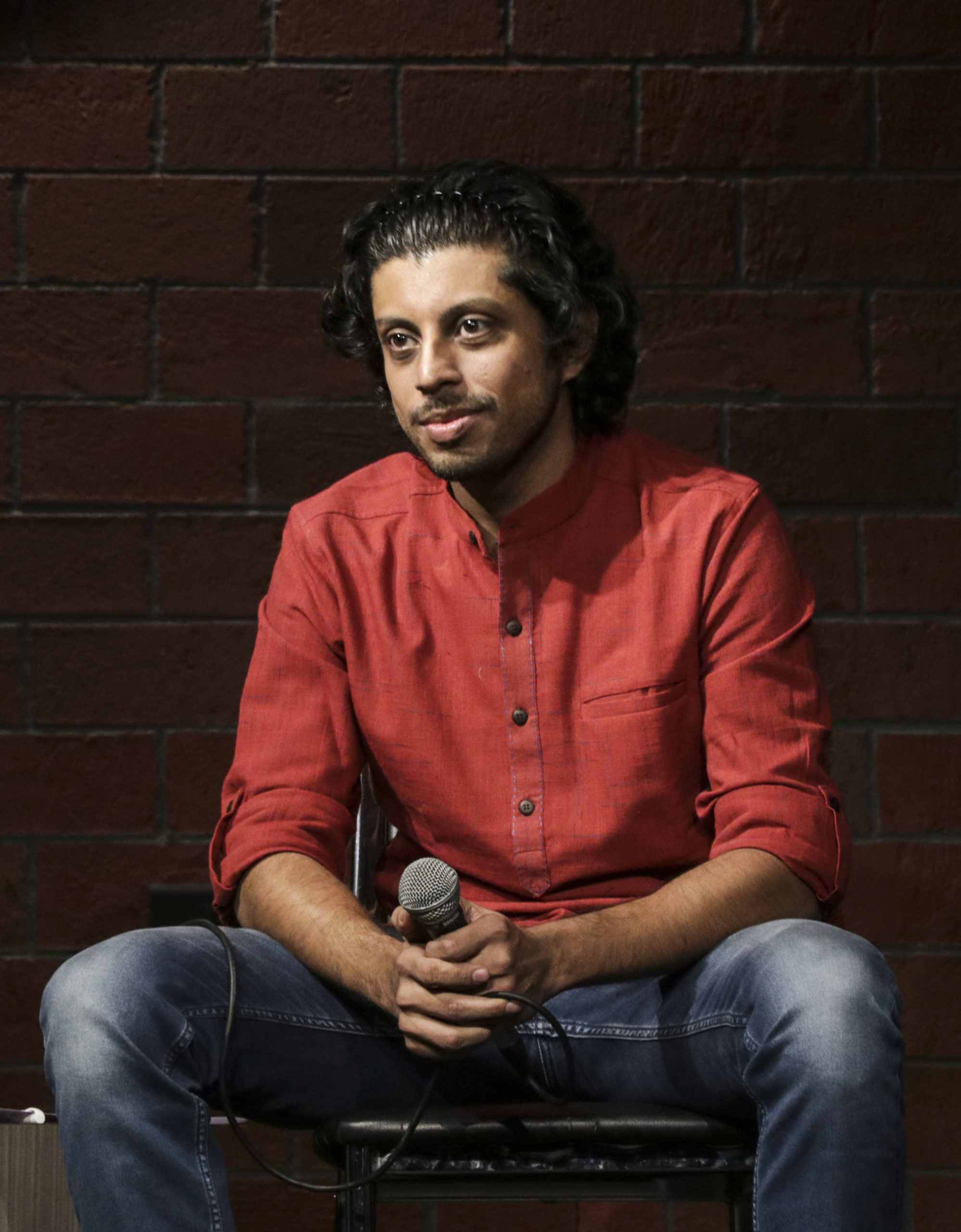 What was it to grow up with the legendary cinematographer Rajen Kothari. He was also much loved by the filmmaking community. What did you imbibe by observing the love he had from his colleagues.
What was it to grow up with the legendary cinematographer Rajen Kothari. He was also much loved by the filmmaking community. What did you imbibe by observing the love he had from his colleagues.
Well, to be honest, I didn't know most of my dad's work till he passed on. I always feel I have discovered him more after him. And I continue to do so even today. On his last film, Das Capital (which he was directing), I was assisting him. That's when I got to know him as a professional more. Otherwise he was pretty much a normal dad who would go for any other job.
Through Das Capital and later on as I started my own journey in this fraternity, I got to interact with a lot of people whom he had worked with or mentored. And the respect that people show when they get to know I am his son is quite overwhelming. This still happens to me 8 years after him when I bump into somebody who had worked with him. I frankly don't know how to react when people express their love towards him.
In terms of imbibing something, I don't know if I have imbibed much, what I take from it is that the fraternity which looks so cold and ruthless from the outside (more so today) has space for kindness and warmth. Being destructive is not the only way to survive in this industry.
How was your experience of making this film. Getting the cast, pitching the idea. What were the key challenges?
Well, Grill will always remain as one of my favourite works I think. It taught me a lot. Most importantly it taught me how each and every shot you take is important. The experience of making the film was fulfilling to say the least. We were a small team but we were the right team.
Getting the cast was probably the easiest part of the process. Thanks to White Wall Screenings and my friend Raghav Aggarwal, I had interacted with Rupesh as we had screened his CinePlay. Both Swati (the writer) and me knew of Rupesh's work and his expertise in clowning. He was the immediate choice.
Pitching was another journey. We tried a lot to 'brand integrate' the film and thereby have some money to take permissions to put a big camera on the street and pay everyone handsomely.
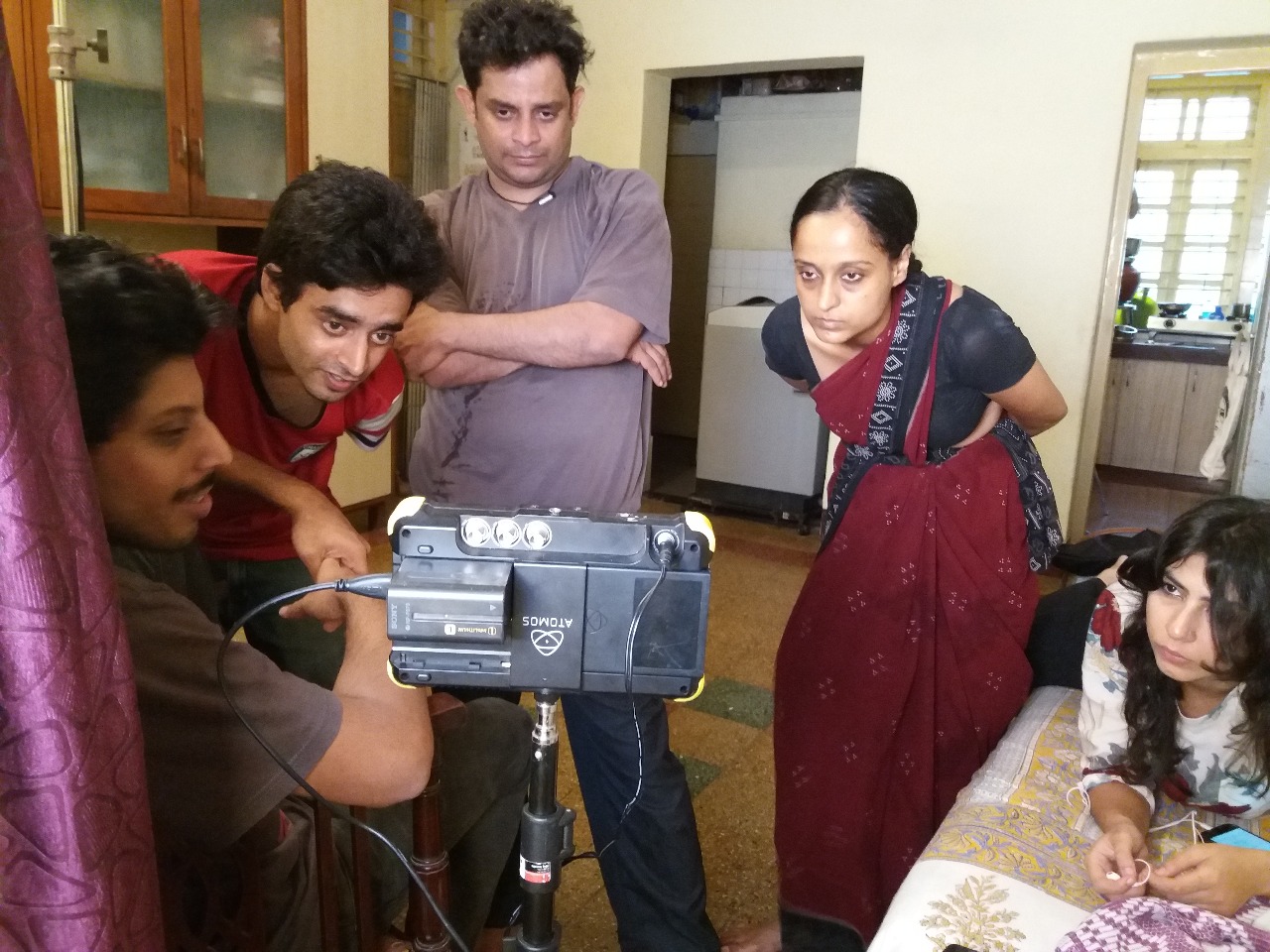 The biggest challenge was budgets (goes without saying) and the location.
The biggest challenge was budgets (goes without saying) and the location.
I scanned through from Borivali to Bori Bunder to look for a house on the grund floor that had a Grill and looked over to the pavement on one side and a huge hoarding on the other and fitting in our budget. Set was not an option. After a 15 day long exercise to see through Mumbai we weren't convinced that we would be able to shoot the exteriors peacefully. I put up a huge descriptive post on Facebook and to my surprise a lot of people suggested we go to KharGhar (Navi Mumbai) and we finally got a few locations. Logistics didn't allow us to stay the crew in KharGhar so we had to design the shoot in a way that we shot only exteriors over there. We shot inside the house in Andheri.
What one advice will you give to short filmmakers?
Firstly, a lot of short films try to be another Bollywood mainstream film with a shorter duration. I personally feel short films are an opportunity to experiment and tell stories you won't get to tell in a 2 hour mainstream film which may get a 3000 screen release. Secondly, we don't seem to care so much about the audio as much as we do about the visual. A sound designer friend told me once - It is an Audio Visual medium. Audio comes first.
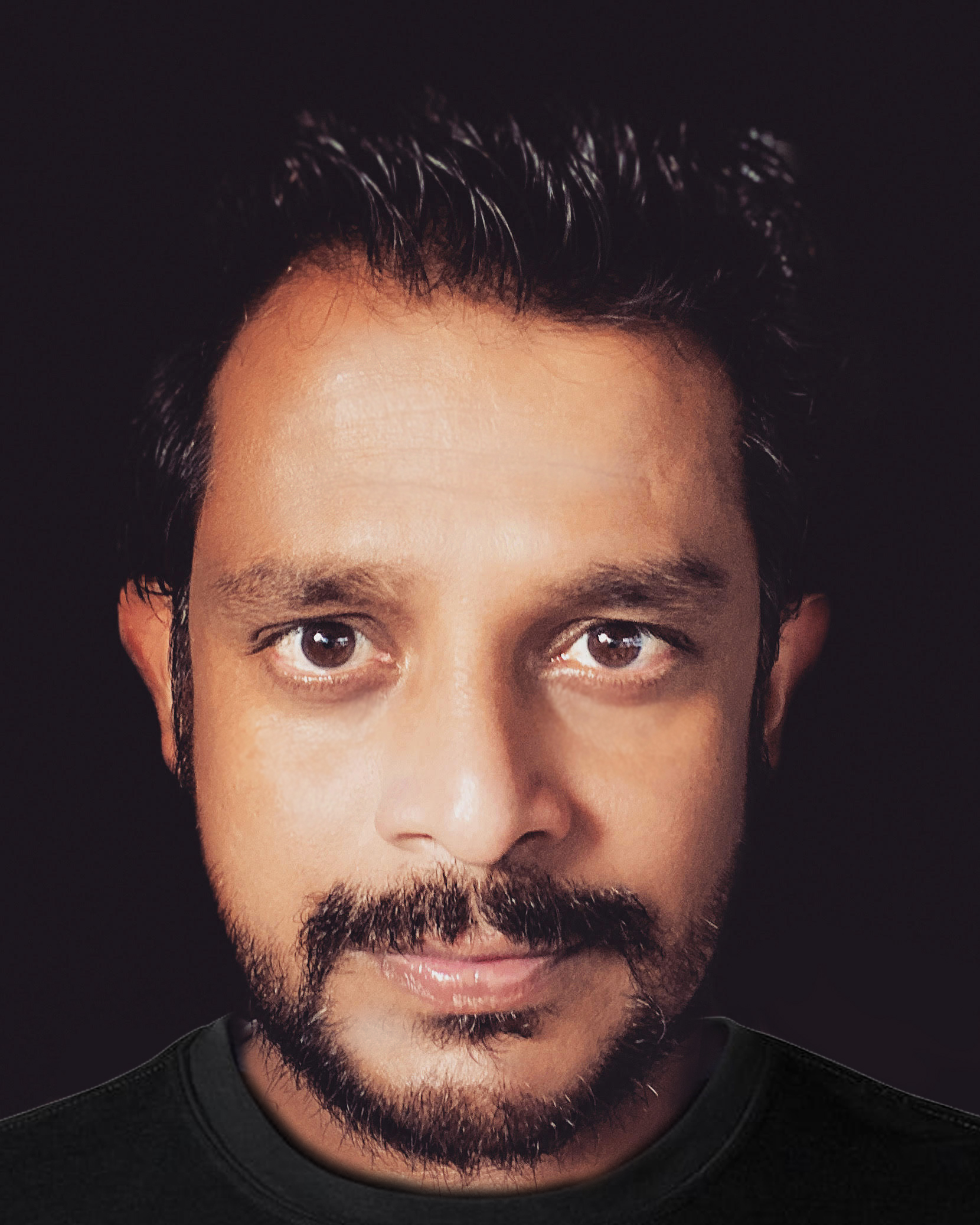
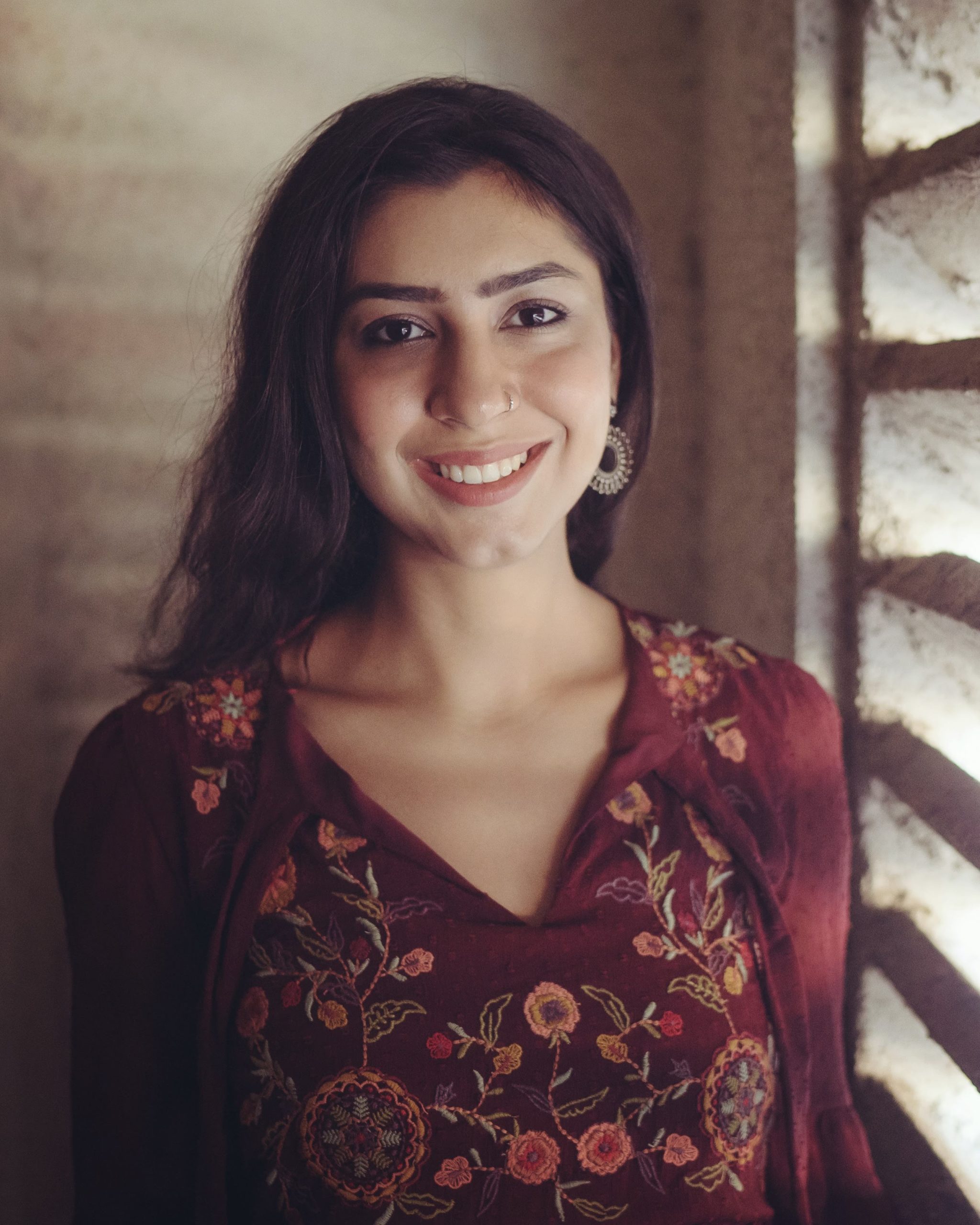 We love your enthusiasm and wwscreening platform! Can you tell us more about it?
We love your enthusiasm and wwscreening platform! Can you tell us more about it?
I had made a short film for their anthology 'Shor Se Shuruaat' for Humaramovie. The anthology released in cinemas and is also available on Amazon Prime which is great. However, I wanted to interact with the audiences who would have seen my film. I tried to look up. Very few people were hosting such screenings.
With no big aspirations in head we started with 'Sunday Shorts' with The Habitat in Khar which would later become White Wall Screenings. As we grew we saw collaborations coming out of people who would have met at White Wall Screenings. With the great support of other bodies called League of Indie Filmmakers (who hosts filmmakers meet ups) and The Actor's Craft (founded by a friend Raghav Aggarwal whom I have mentioned earlier who hosts the film appreciation chapter) we saw that an ecology is being created where the filmmakers, technicians and actors all are benefiting and connecting with each other on the ground.
What are you working on next?
I just finished co directing a short film during the lockdown. The entire prep and post was done virtually while for two days we shot at the actors' houses. One day each. A very limited crew including me, the operative cameraperson, a sound recordist and a production help was all we had. The director, Kabeer Khurana, was monitoring each shot from his bedroom over a Zoom call.
Apart from this, I had directed a feature film recently, which we were trying to finish. Unfortunately we need to shoot a bit more so waiting for the right time to do that. I am also working on the writing of my next feature.





